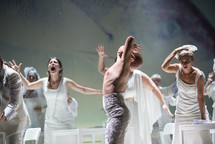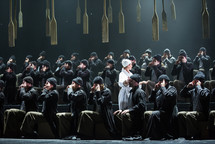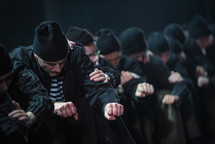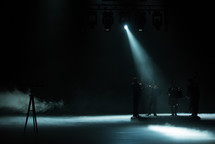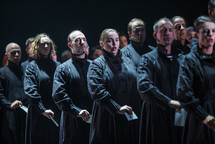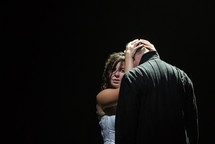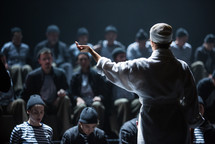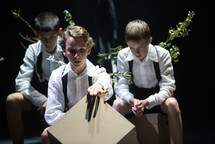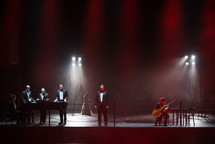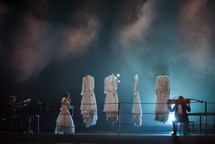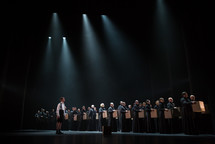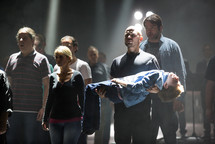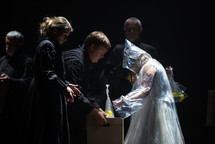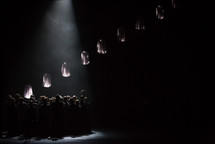Evergreen
Is There One Who Would Not Weep?
Press
... the appproach is certainly innovative, but also demanding ... the performance is distinguished by its excellent scenic execution... astonishing dedication and discipline of the performers on an opera stage... the choir was a surprise, proving that it can do more than we've seen so far …
(Delo)
... this was an enterprising and welcome venture, received enthusiastically in the main by a receptive audience…
… project demanded imagination, skill and courage from all participants, unused to such experimental work and strong performances were given by the tenor Aco Aleksander Biščevič, the baritones Jože vidic and Robert Verčon, the tenor Matej Vovk, the bass Peter Martincic, the soprano Urška Arlič Gololičič and the mezzo-soprano Mirjam Kalin …
… second act and finale were powerful and genuinely touching …
(Opera, 2017)
Download
- Zapis o ideji predstave: Mladen Dolar: Čemu služi glasba [pdf, 246 KB]
- Pogovor o predstavi: Orfični trenutek [pdf, 300 KB]
- EVERGREEN - introduction in Slovene language [docx, 15 KB]
- EXTRACTS FROM THE INTERVIEW [pdf, 653 KB]
- stgw_/evergreen_layout_05kks.pdf [pdf, 1.76 MB]



